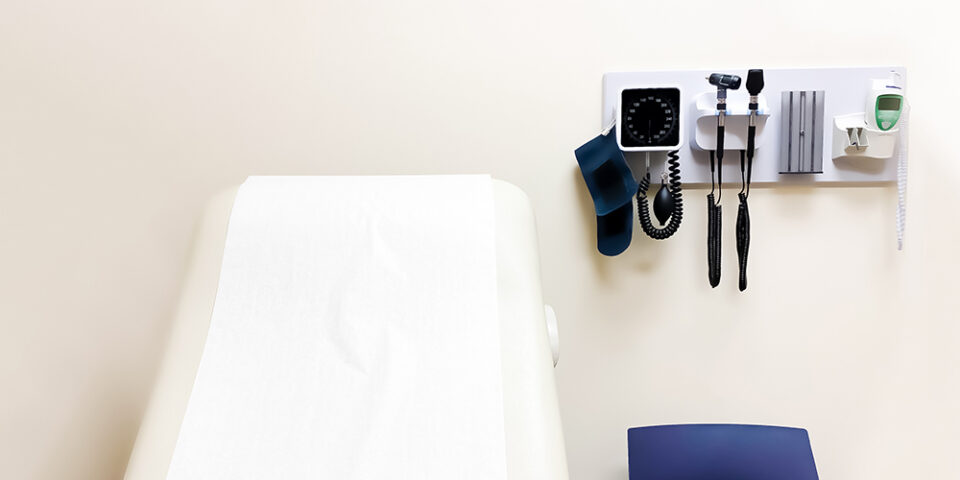Should you go to urgent care or the emergency room? How to know where to go
Maybe you woke up with a fever, cut your hand while slicing that avocado for dinner, or perhaps you have a weird feeling in your chest. Should you go to urgent care or the emergency room? Stephanie Trowbridge, MD explained how to know where to go for care for illness or injury.
How do you know if you need to go to the ER?
“It’s important to go to the ER for severe or life-threatening conditions that require immediate medical attention,” Dr. Trowbridge said.
Hospital emergency rooms have the specialists and equipment to deal with the most severe problems, so head to the ER or call 911 if you have any of these symptoms:
- Chest pain
- Difficulty breathing
- Sudden severe pain
- Life- or limb-threatening injuries
- Excessive or uncontrollable bleeding
- Loss of consciousness
- Severe allergic reactions
- Serious burns
- Signs of a stroke or heart attack
- Head injuries with loss of consciousness
“You can also go to the ER for illness or injuries that your doctor cannot fully treat outside of the hospital,” she said. “ERs are open 24/7, so if urgent medical attention is needed late in the evening or early morning, the ER may be the only and best option.”
What is the difference between emergency care and urgent care?
One of the main differences is the type of care provided. The ER is best when someone is facing a true life- or limb-threatening medical emergency or severe medical condition. Urgent care clinics are more appropriate for minor to moderate conditions.
“Urgent care is for medical issues that cannot wait days to be treated but are not immediately life-threatening,” Dr. Trowbridge explained. “For example, if someone is experiencing severe discomfort but their life is not in immediate danger, urgent care may be the best choice.”
The cost of care and wait times also differ significantly between emergency and urgent care. ER visits are more expensive than urgent care visits, even with insurance, and ER wait times tend to be longer than those at urgent care if there is not a true, life-threatening emergency.
“If you are unsure about the appropriate level of care for your medical condition, it’s always a good idea to call your primary care physician or be seen in your local urgent care for guidance, Dr. Trowbridge said. “Remember, if you are experiencing a life- or limb-threatening medical emergency, call 911 or go to the nearest ER immediately.”
How does an urgent care determine the order of patients waiting to be seen?
A combination of arrival time and time slot reservation determines a patient’s position in the queue. With the option to walk in or book ahead online for care, the number of patients in the queue may not always be visually obvious. For example, those who book ahead online may reserve a time slot later in the day and do not need to arrive until closer to that time. So, there may be people with reserved time slots ahead of patients who choose to walk in.
Another factor that determines a patient’s place in the queue is case severity. Patients who come to urgent care with more severe issues, such as active bleeding, may be prioritized over those whose reasons for visiting are less time-sensitive, such as diagnostic testing. Clinic staff are trained to identify and prioritize the most immediate needs.
Are virtual visits a good option for urgent care?
“Urgent care virtual visits are a great option for patients who have illnesses that do not require further testing for treatment,” Dr. Trowbridge said. “For example, care for seasonal allergies, rashes, and eye redness can often be handled virtually. For illnesses and injuries that require lab tests or X-rays, however, an in-clinic visit is necessary to collect testing samples.”
Is it okay to use urgent care for primary care?
Using urgent care to replace a relationship with a primary care physician is not recommended. While urgent care can help in cases where patients are sick, injured or need care sooner than their primary physician’s next available appointment, having one doctor manage a patient’s health and wellness is the most personalized and effective way to get and stay healthy.
Building an ongoing relationship with a primary care doctor can also help find potentially life-threatening problems in time for treatment. A doctor who doesn’t know you and your medical history as well might miss those less-obvious symptoms.
Find the care you need, close to home
Our primary care physicians provide well visits and everyday care when you need it with compassion and expertise.
Find Primary Care Near You
